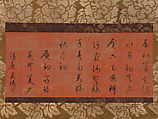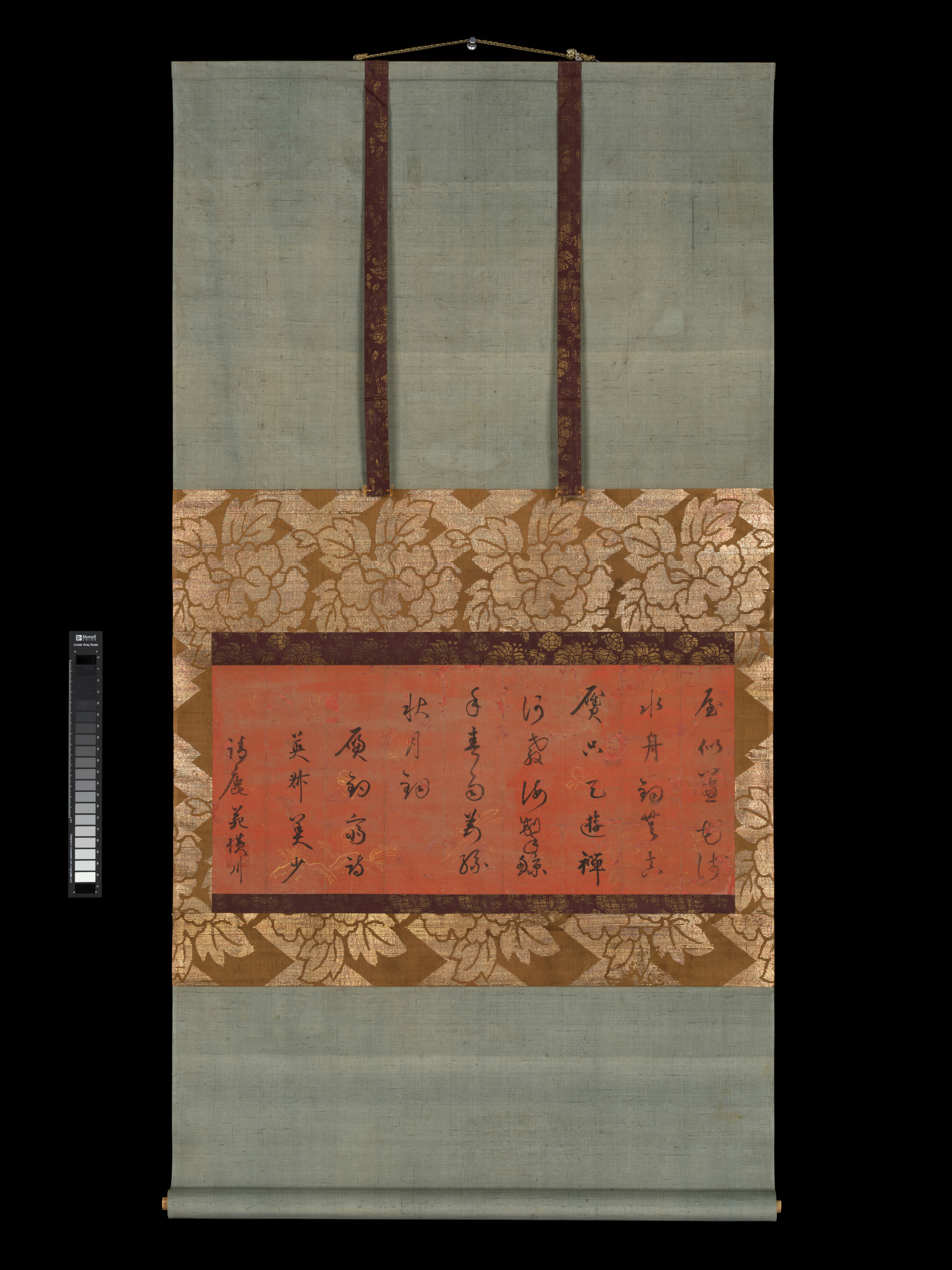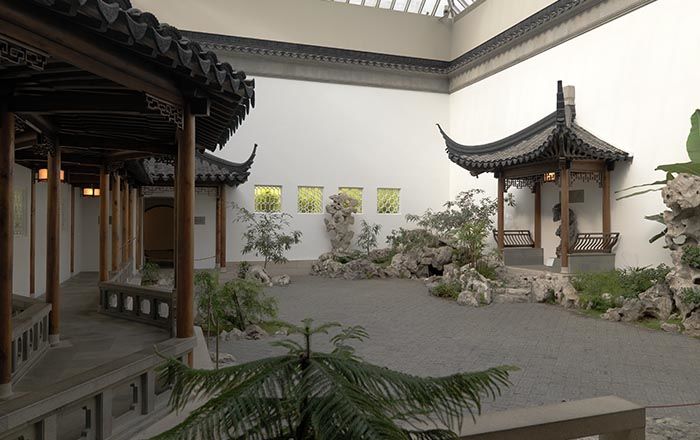Chinese Poem on Fishing and Zen
Ōsen Keisan 横川景山 Japanese
Not on view
Brushed in flamboyant, yet fully controlled brushwork on gorgeous orange-red dyed paper, the eminent Zen monk-literatus Ōsen Keisan has inscribed a quatrain of a Chinese poem as his wont in a combination of standard, semi-cursive, and cursive scripts. It can be deciphered and tentatively translated as follows:
屋似蘆花浅水舟、釣無眞贋只天遊、
禪河敎海掣鯨手、春雨爲絲状月鈎、
My hut resembles a shallow-water skiff
amid the reeds and flowers,
Where I pass my time fishing idly,
just enjoying nature.
From the river of Zen, into the ocean of Buddhist Law,
I try to reel in a whale,
Using fine spring rain as a fishing line
with the hook of the crescent moon.
Osen Keisan was a monk of the Rinzai Zen sect, and a prominent figure in the Gozan Bungaku literary salon culture of the five high-ranking Zen temples of Kyoto of the day. He was an aide and close confidant of the eighth Ashikaga shogun, Yoshimasa (1436–1490), and advised him on both foreign affairs and literature.
This image cannot be enlarged, viewed at full screen, or downloaded.
This artwork is meant to be viewed from right to left. Scroll left to view more.



